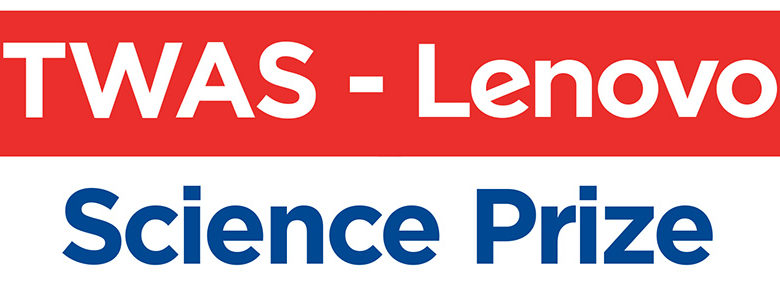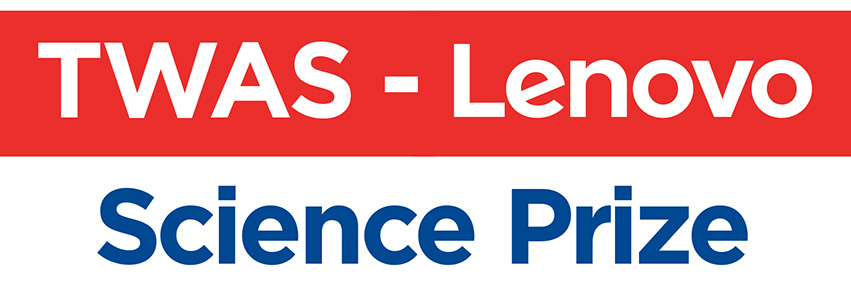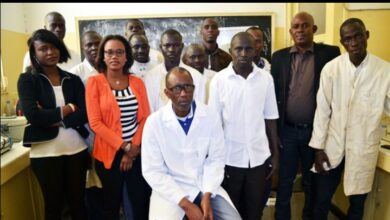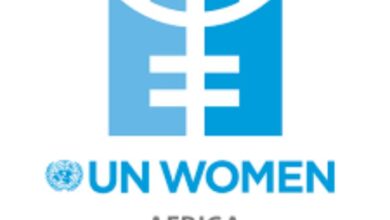TWAS-Lenovo Science Prize

The TWAS-Lenovo Science Prize is one of the most prestigious honours given to scientists from the developing world. In 2018 the prize will be given for outstanding achievements in Engineering Sciences.

Lenovo is a US$45 billion global Fortune 500 company and a leader in providing innovative consumer, commercial, and enterprise technology. Its portfolio of high-quality, secure products and services covers PCs (including the legendary Think and multimode YOGA brands), workstations, servers, storage, smart TVs and a family of mobile products like smartphones (including the Motorola brand), tablets and apps.
The rapid growth Lenovo has recently experienced in emerging markets has prompted the company to partner with TWAS to launch a high-level prize to give international recognition and visibility to individual scientists in the developing world for their outstanding scientific achievements.
The 2017 TWAS-Lenovo Science Prize was awarded to Victor Alberto Ramos, for his contributions to the understanding of the formation of the Andes and the crustal evolution of South America.
The 2016 TWAS-Lenovo Science Prize was awarded to Zhao Dongyuan, for his pioneering research in the field of ordered mesoporous materials (FDU series) for diverse applications around the world.
The 2015 TWAS-Lenovo Science Prize was awarded to Artur Avila, for his outstanding contributions to several areas of dynamical systems, especially to the spectral theory of one-frequency Schrödinger operators.
The 2014 TWAS-Lenovo Science Prize was awarded to Quarraisha Abdool Karim from South Africa, for her exceptional and distinguished contributions in HIV prevention and women’s health.
The 2013 TWAS-Lenovo Science Prize was awarded to Chilean theoretical physicist Claudio Bunster Weitzman for his contributions to understanding gravity and the quirky physics of tiny, fundamental particles of matter.
Prize. The TWAS-Lenovo Science Prize will carry a monetary award of USD100,000 provided by Lenovo, as well as a medal and a certificate highlighting the recipient’s major contributions to science. The prize will be presented to the recipient at a special ceremony arranged by TWAS.
Field. During the first four-year cycle (2013-2016), the prize subject focused on the basic sciences, with the specific subject area changing each year: physics and astronomy (2013), biological sciences (2014), mathematics (2015) and chemical sciences (2016). During the second four-year cycle (2017-2020) the prize subjects will be: Geological Sciences (2017), Engineering Sciences (2018), Agricultural Sciences (2019), Social Sciences (2020).
For the 2018 edition of the prize, TWAS will consider candidates with world-class achievements in Engineering Sciences.
Nominations. Nominations are invited from TWAS members, selected individuals, as well as from science academies, national research councils, universities and scientific institutions. Nominations of women scientists are particularly encouraged. Self-nominations and nominations from jury members will not be accepted.
Eligibility. Candidates must be nationals of a developing country and must have lived and worked in a developing country for the last 10 years. The prize will only be awarded to individuals for scientific research of outstanding international merit carried out at institutions in developing countries. Jury members and previous winners of the Trieste Science Prize (also administered by TWAS) are not eligible for the TWAS-Lenovo Science Prize.
Evaluation. The evaluation and selection will be carried out by an authoritative international jury chaired by the TWAS president and including a representative from Lenovo.
Deadline: 16 April 2018
https://twas.org/opportunity/twas-lenovo-science-prize




